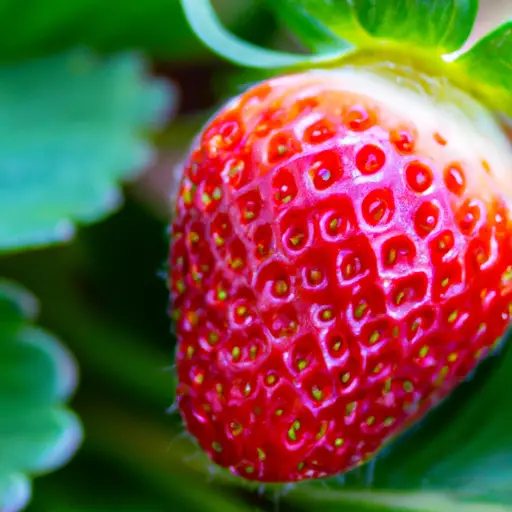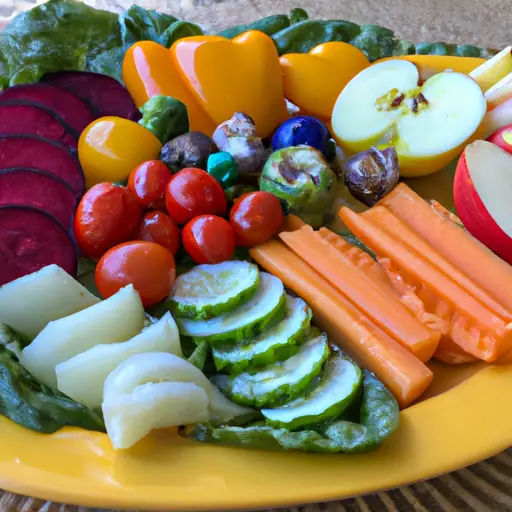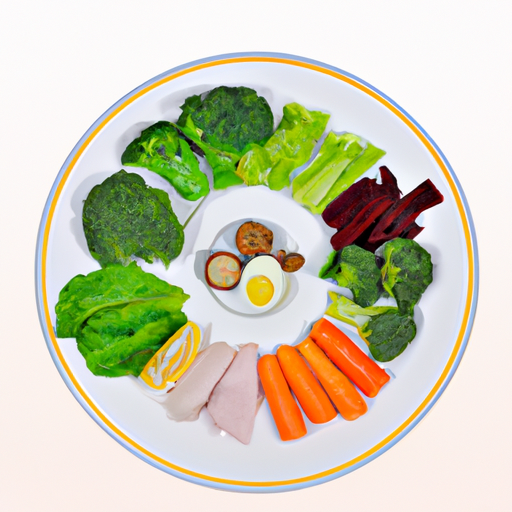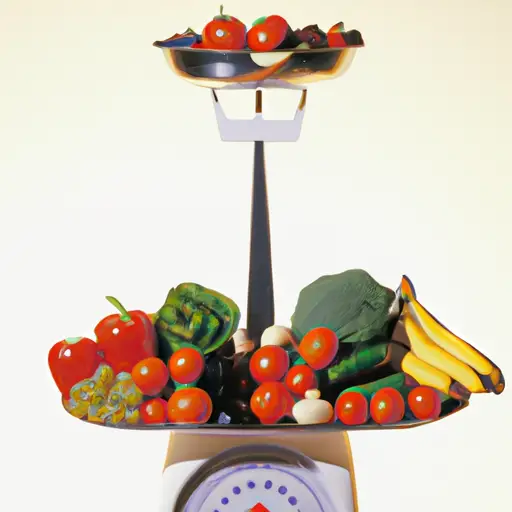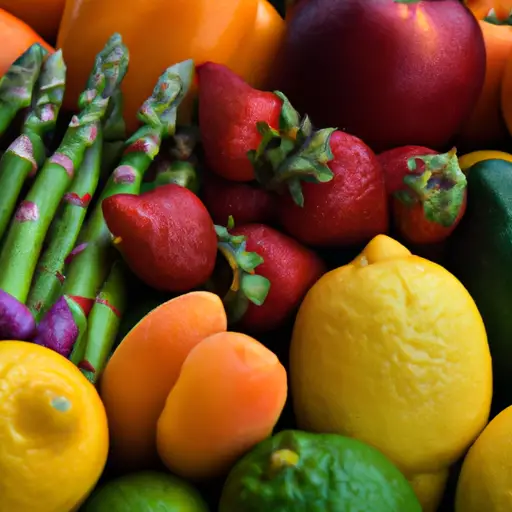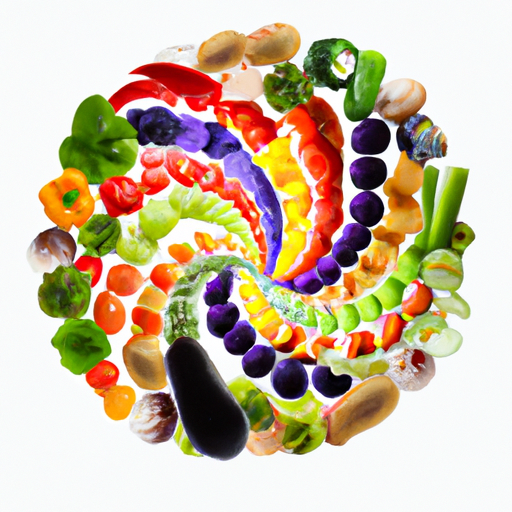Organic Foods Separating Fact from Fiction
Hey there, folks! Let’s dive right into the juicy world of organic foods! Now, before we get into all the nitty-gritty details, let me give you a little rundown on what exactly organic foods are. Basically, organic foods are grown and produced using methods that prioritize natural processes and avoid the use of synthetic chemicals, pesticides, and genetically modified organisms (GMOs).
Benefits of Organic Foods
Alright, folks, let’s talk about the awesome perks of chowing down on organic foods. I mean, where do I even begin? First off, organic foods are like little health powerhouses that can make you feel like a million bucks. No kidding! You see, when you choose organic, you’re avoiding all those nasty synthetic pesticides and fertilizers that can wreak havoc on your body. It’s like giving your immune system a big ol’ boost, which is pretty darn cool if you ask me. And let’s not forget about the taste – organic foods just seem to have that extra oomph of flavor that can make your taste buds do a happy dance.
But hold up, it’s not just our bodies that benefit from going organic – the environment gets a major high-five too. Organic farming practices help preserve the soil, protect the waterways, and even promote wildlife habitats. It’s like a win-win situation, folks. Plus, organic farmers use natural methods to control pests and weeds, so you won’t find any of those yucky chemical residues hanging around on your delicious produce. Now that’s what I call eco-friendly eating.
3. Drawbacks of organic foods
Now let’s talk about some not-so-great aspects of organic foods. Y’know, it’s not all rainbows and unicorns. One of the biggest hurdles is the cost. Organic products tend to be pricier compared to conventionally grown options. I mean, it’s like paying a premium just for that fancy “organic” label. But hey, if you’re willing to splurge a bit for the sake of your health and the environment, then more power to you!
Another thing to consider is the availability of organic foods. Sometimes it feels like finding a needle in a haystack, trying to locate that organic produce in your local grocery store. It’s like a treasure hunt! Not every store carries a wide variety of organic options, so you might have to do a little extra searching to find what you’re looking for.
But hey, let’s not get discouraged. These drawbacks shouldn’t overshadow the overall benefits of organic foods. Sure, it might cost a bit more and require some extra effort to find, but the positive impact it can have on our health and the environment is well worth it. So don’t let these setbacks deter you from embracing the organic lifestyle!
4. What to look for when buying organic
Alright folks, let me give you the lowdown on what you need to keep an eye out for when you’re shopping for organic foods. Don’t worry, I’ve got your back!
First things first, always make sure to look for that organic certification label. You know, the one with the snazzy “USDA Certified Organic” seal? That’s the real deal, my friends. It means that the food has met strict standards and has been produced without synthetic pesticides, antibiotics, or genetically modified organisms.
But hey, don’t just stop at the certification label. Take a good look at the other labels too. Words like “100% organic” and “made with organic ingredients” can give you even more information about the product you’re buying. These labels can help you determine just how much of that product is really organic.
Now, here’s a pro tip for ya: don’t forget to give the ingredient list a gander. Look out for any sneaky additives or preservatives that might have slipped their way into that organic product. Remember, just because it’s organic, doesn’t mean it’s automatically free of additives. Stay vigilant!
One more thing, folks. Don’t be fooled by fancy packaging or claims that sound too good to be true. Just because a product has the word “natural” slapped on it, doesn’t mean it’s actually organic. Trust me, I’ve seen plenty of products try to pull a fast one.
So there you have it, my friends. When you’re on the hunt for organic foods, keep an eye out for that organic certification, read the labels, check those ingredients, and don’t fall for any slick marketing tricks. With these tips in your back pocket, you’ll be a savvy organic shopper in no time. Happy grocery shopping!
Conclusion
Well, folks, that’s a wrap! After diving deep into the world of organic foods, it’s clear that they have some undeniable benefits, both for our health and for the environment. It’s pretty cool to know that by opting for organic, we can avoid those pesky pesticides and synthetic additives that can harm our bodies. Plus, organic farming practices promote biodiversity and soil health, which is a win-win for Mother Earth.
Of course, there are a couple of drawbacks to consider when it comes to organic foods. Let’s be honest, they can be a bit pricey. But hey, as the saying goes, “you get what you pay for”. Investing in our health and the planet is definitely worth it, don’t you think?
Another thing to keep in mind is that organic options might not always be readily available, depending on where you live. But fear not! With the increasing demand for organic foods, more and more stores are stocking up on these goodies. So, be on the lookout and don’t give up the search!
When it comes to buying organic, it’s important to look for that trusty organic certification. Those fancy labels are there for a reason, folks! They ensure that the products meet specific standards set by recognized organizations. So, keep an eye out for those logos and make sure the goods are legit.
Well, my friends, I hope this journey into the world of organic foods has been informative and maybe even a little inspiring. Remember, every little choice we make can have a big impact on our health and the environment. So let’s take the organic path when we can and keep on nourishing ourselves and the planet!
Organic Food FAQ
Is organic food really better for you?
Oh boy, let me tell ya, the truth about organic foods is quite a controversial topic! Now, you might have heard that organic food is the holy grail of healthy eating, but let’s dig a little deeper, shall we?
First things first, is organic food really better for you? Well, some folks out there argue that organic food is the bee’s knees because it’s grown without synthetic pesticides and fertilizers. They claim it’s a lot healthier because it contains fewer harmful chemicals that could wreck havoc on your body. But hold your horses, because there’s another side to this story! Some experts argue that the overall nutritional value of organic food compared to conventionally grown food is pretty much the same. They say there’s not enough evidence to prove that going organic will automatically make you a picture of health.
Now, here’s where things get a bit twisty. You might be wondering, if the nutritional value isn’t significantly different, then why should I fork out the big bucks for organic? Well, my friend, it’s not just about the nutrients. Many organic farmers focus on promoting biodiversity, protecting the environment, and supporting sustainable farming practices. They skip the genetically modified organisms (GMOs) and prioritize animal welfare. So, if you’re all about Mother Earth and want to take a stand against harmful chemicals and factory farming, then organic might be the way to go.
But hang on, there’s still more to consider! Organic food can be pricier than its conventional counterparts, so if you’re on a tight budget, you might need to crunch those numbers. It’s also worth mentioning that just slapping an organic label on a food item doesn’t necessarily mean it’s a nutritional powerhouse. Remember, cookies, chips, and sodas can also be organic. So, don’t let the fancy label fool ya! It’s essential to focus on a well-balanced diet and consider the overall quality of your food choices, organic or not.
In a nutshell, my friend, the truth about organic food is a complex one. While the nutritional benefits might not be substantially different from conventionally grown food, opting for organic can have positive impacts on the environment and support sustainable farming practices. It’s all about weighing the pros and cons and determining what aligns best with your values and budget. So, whether you go organic or not, just remember to chow down on a variety of wholesome foods and enjoy every bite!
Why is all food not organic?
Honestly, I don’t think there’s a simple answer to why all food isn’t organic. I mean, it’s a complex issue with a lot of factors at play. First off, organic farming methods require more time, effort, and resources compared to conventional farming practices. Farmers need to adhere to strict guidelines, avoid synthetic fertilizers and pesticides, and implement crop rotation and natural pest control. These practices can be more costly, and not all farmers are willing or able to make the switch. Plus, organic farming yields can be lower in certain cases, which can make it harder to meet the ever-growing demand for food. So, some farmers might choose conventional methods to maximize their productivity and profitability. Additionally, there are some skeptics who question the benefits of organic food, arguing that the differences in nutrition and safety are not significant enough to justify the higher price tag. While organic foods are free from synthetic chemicals, studies evaluating the potential health benefits remain inconclusive. So, for some consumers, the choice to buy organic may not seem worth it. That being said, it’s important to note that organic farming has a smaller environmental impact and promotes biodiversity, which are crucial benefits. So, while it would be ideal for all food to be organic, the reality is that various factors contribute to why it’s not yet the case.
Do organic foods have chemicals?
The truth about organic foods is that they do indeed have chemicals.
Wait, hold on a minute – don’t go running for the hills just yet! Allow me to explain. Organic foods are produced without the use of synthetic pesticides, fertilizers, or genetically modified organisms (GMOs). However, this doesn’t mean they are completely free of chemicals. Organic farmers may still use natural substances derived from plants and minerals to control pests and enhance crop growth. These natural substances, while technically chemicals, are approved for organic farming and considered to be safer alternatives to synthetic pesticides. So, yes, organic foods have chemicals, but they are a different type of chemical compared to conventionally grown foods.
Okay, now let’s dig deeper into the idea.
Think about it this way: when you eat an organic apple, you’re not ingesting harmful pesticides or chemical residues that can linger on conventionally grown fruits. Instead, you are consuming natural chemicals that exist in the apple itself – the ones that give it its flavor, color, and nutrition. These chemicals, known as phytochemicals, are essential for the plant’s defense against pests and diseases. Consuming them can even have health benefits for us humans, such as antioxidant properties and potential disease-fighting effects. So, while organic foods do have chemicals, they are the natural kind that can be beneficial for our bodies. It’s like getting the best of both worlds – yum!
Now, I just want to note that not all organic foods are created equal. Just because something is labeled as “organic” doesn’t automatically make it healthier or more nutritious than its conventional counterpart. It’s important to still make wise choices when shopping for organic products. Focus on variety, freshness, and whole foods. Look for organic produce with vibrant colors, as these indicate a high nutrient content. Consider buying local and seasonal organic foods to support sustainability and reduce environmental impact. Remember, organic isn’t just about the absence of chemicals – it’s also about promoting a holistic and sustainable approach to agriculture. So, don’t be fooled by the marketing hype; let your taste buds and common sense guide you in selecting the best organic options for your well-being.
In conclusion, organic foods do contain chemicals, but they are naturally derived and considered safer than synthetic ones. Eating organic can help reduce exposure to harmful pesticides and chemical residues. Plus, you get to enjoy the potential health benefits of the natural chemicals found in these foods. However, not all organic foods are equal in terms of nutrition, so it’s important to choose wisely. Consider factors like variety, freshness, and supporting local and seasonal options. Organic isn’t just a label; it’s a way of supporting sustainable agriculture and making mindful food choices. So go ahead and savor those organic goodies guilt-free – your taste buds and body will thank you for it!
what is the truth about organic foods?
Well, let me tell ya, the truth about organic foods is a hot topic, ya know? Some folks swear by ’em, claimin’ they’re healthier and better for the environment. But ya gotta take it with a grain of salt, ’cause there’s a lotta debate out there. Now, experts say that organic foods are grown without the use of synthetic pesticides or fertilizers, which can be a good thing, I suppose. And let’s not forget that these foods are also free from genetically modified organisms, hormones, and antibiotics, or so they say. But here’s the thing: some studies suggest that the nutritional content of organic foods may not be all that different from conventionally grown ones. So, it’s really up to you to decide if the benefits outweigh the potentially higher prices.
